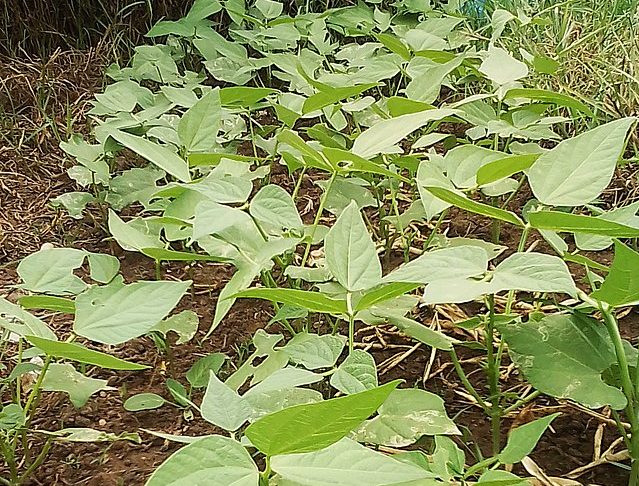An INTA research team is analyzing the short-term effects of the inclusion of different winter service crops on the physical, chemical and microbiological properties of a soil degraded by bean monoculture. The results of the study will contribute to generate strategies aimed at recovering soil health and minimizing soil degradation.
In the NOA, the monoculture of the common bean, coupled with agricultural practices only focused on productivity, constitute an unsustainable use of natural resources and negatively impact the ecosystem properties that the soil contributes. For this reason, specialists from INTA Salta are evaluating the effects of including leguminous plants (peas and melilotus) and grasses (oats and wheat) in the agricultural sequence as winter service crops, in comparison with production systems under bean monoculture.
Preliminary results of the study, which was conducted during three consecutive years, indicated that the introduction of service crops (SC) in the sequence significantly increased the abundance of the main microbial groups and the carbon and nitrogen of the microbial biomass, as well as facilitated a rapid improvement in the physical and chemical quality of the soil.
Carolina Perez Brandan-a specialist in agricultural microbiology at INTA Salt-together with Jorgelina Huidobro and Carla Aban, from the Natural Resources Group of the same unit, focused on the study of the intensification of the agricultural sequence through the inclusion of Argentinian leguminous and non-leguminous plants in degraded soils from bean monoculture.
“After three years, we determined that the service crops improved soil quality and yields of the common bean crop,” explained Perez Brandan, adding, “This also resulted in an improvement in rhizosphere microbiota compared to a monoculture system.”
The inclusion of CS increased the carbon and nitrogen content of the soil’s microbial biomass by more than 50%. Similarly, soil microbial respiration and enzymatic activities improved.
“The consociated service crops (oats and vetch) had a positive effect on soil quality, but that impact was minor compared to service crops that included legumes and grasses used as sole crops,” Perez Brandan expressed and emphasized that “the replacement of winter fallow for three consecutive years, either by sole or mixed service crops allowed improving the abundance, composition and activity of the rhizosphere microbial community, ultimately improving the physicochemical and biological characteristics of a degraded system.”
“The information generated in this research will contribute to the study on the inclusion of certain service crops in conservation strategies to recover soil health and minimize soil degradation, while maintaining crop yields,” said the INTA specialist.
Source: Argentina.gob.ar
